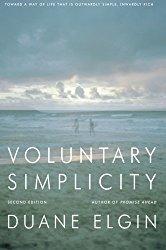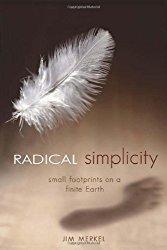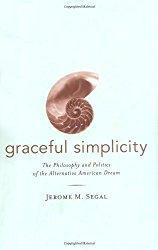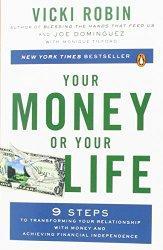 When I think of the word “simplify” I am reminded of Henry David Thoreau’s directive to “Simplify, Simplify!” Thoreau carried his belief in simplifying to what most of us would consider an extreme in today’s world: he chose to live, alone, in a cabin in the woods, off the grid (not that there was much of a grid back in 1854) for more than two years. His goal: to distill life down to its essence – devoid of distractions – so that he might discern what really matters and to live authentically.
When I think of the word “simplify” I am reminded of Henry David Thoreau’s directive to “Simplify, Simplify!” Thoreau carried his belief in simplifying to what most of us would consider an extreme in today’s world: he chose to live, alone, in a cabin in the woods, off the grid (not that there was much of a grid back in 1854) for more than two years. His goal: to distill life down to its essence – devoid of distractions – so that he might discern what really matters and to live authentically.
Whoa.
Even those of us who are thoroughly committed to the concept of simplifying are unlikely (and likely unable) to take a Thoreau-esque sabbatical from our real lives to “find ourselves.” Others among us just want to make a few calming changes to our hectic lifestyles – not ponder our very existence, or take a year or two to define the meaning of life.
Where do you fall on the simplifying spectrum? And how do you find out?
Thoreau’s rustic, unadorned, prolonged interlude in the woods isn’t the only way to determine how “simple” you are – or want to be. But anyone can (and really should!) do some soul searching. If done with the true intent of discerning what Thoreau described as the “essential facts of life,” your efforts to search your soul could improve the balance of your life immensely by helping you live genuinely – or you could be blessedly reassured that you are, indeed, living an authentic life, one that dovetails with your values and beliefs.
You can do this by setting aside a few hours of uninterrupted quiet or even carving out a weekend retreat (think of it as your mini-Walden experience). First you might want to read a little – or a lot! – on the subject. (I’ve included some resources at the end of this post.)

Ultimately, you’ll want to answer – truthfully and after considerable deliberation – a few basic questions (writing down your answers – in great, even painful, detail – is essential):
- How do YOU define success? You might want to tackle this question from a different angle and ask “how would you define a life lived with no regrets?” How would you spend your time? How would your life be different?
- What do you think our purpose is here on earth? As author/environmentalist Wendell Berry asks in one of his essays, “What are people for?”
- What matters to you most? What do you hold sacred? When do you feel most at peace? What brings you the most fulfillment?
- What characteristics do you value in your friends and family?
- What makes you happy? What activities give you the greatest joy?
After answering these questions you will (you should!) begin to see some patterns developing. Most of us will discover that we very much value people over stuff. We cherish time – with friends and family, with nature, with ourselves, with a good book – over an 80 hour work week, a McMansion and an $80,000 car.
If you find that your answers lean this non-materialistic way, you are, indeed, a candidate for simplifying. Simplifying – removing the clutter, getting off the work-spend-work treadmill, giving yourself TIME – will ultimately allow you to live your values.
And isn’t that what life is all about?
Simplifying Resources:
Websites:
- simplicitycollective.com
- choosingvoluntarysimplicity.com
- theminimalists.com
- bemorewithless.com
- financialintegrity.org
Books:
- Voluntary Simplicity by Duane Elgin (Harper Collins, 2010; first published in 1981)
- Radical Simplicity: Small footprints on a finite earth by Jim Merkel (New Society Publishers, 2003)
- Graceful Simplicity by Jerome Segal (Henry Holt & Co., 1999)
- Your Money or Your Life by Joe Dominguez and Vicki Robin (Penguin, first published in 1992)




(Part Two in this series, which we’ll post in a couple of weeks, will cover some easy to do items – maybe we’ll call them Baby Steps to Simplifying. They’ll include things that will help you find time and calm without drastic life changes. Part Three – we’ll get that to you a couple of weeks after Part Two – will move on to those major actions that can result in significant, even profound transformations in your life – like changing careers, moving, working part-time or retiring early, even very early. Stay tuned.)

